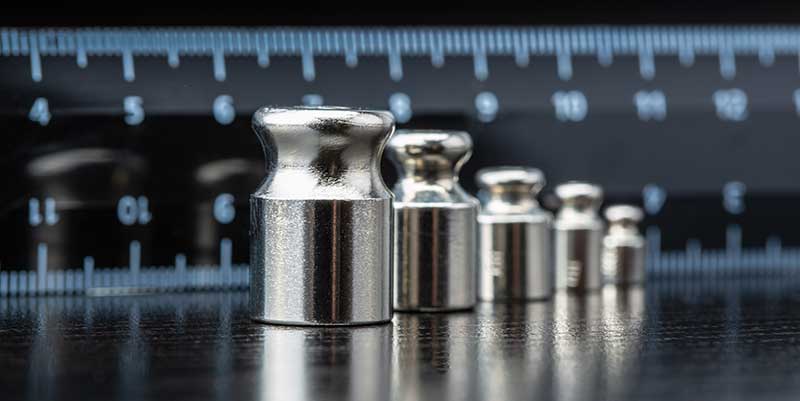Posts Tagged ‘scientific digital scale’
Selecting Scale Weights for Calibration Testing
Calibrating precision digital scales, analytical balances and moisture analyzers that rely on accurate weight measurement requires periodic tests using a scale weight closely matching the maximum capacity of the instrument being tested. Why Testing with Scale Weights is Important Daily we depend on weighing accuracy – such as visits to the deli counter in the…

